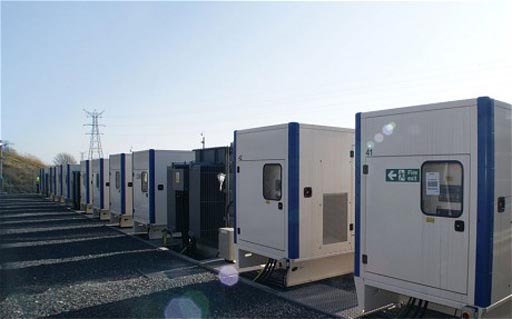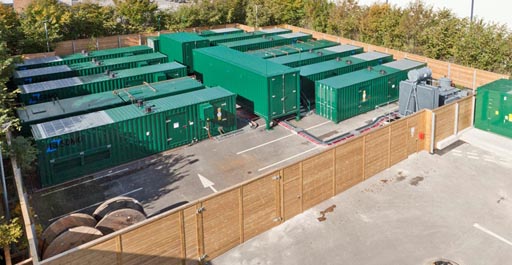
Future Proofing UK Power
9/02/2017 - posted in Buildings, Civils, Geoenvironmental, HBPW News, IndustrialAs Britain faces the possibility of electricity ‘outages’ because of decreased power supply, HBPW is playing its part in government attempts to ensure that the lights never go off.
Short-Term Operating Reserve (STOR) is National Grid’s most important source of reserve energy and is delivered by reducing demand or increasing generation with around ten minutes’ notice.
But in order for this strategy to work, special electricity generating sites must first be in place up and down the country with the capability to operate for at least two hours in the event of short term need by the National Grid. UK-wide, the government is strategically behind their proliferation and is incentivising development of STOR sites.
“To date we have designed the civil and structural engineering design for five such operating units on behalf of our sister company HB Projects who have been developing them for a third-party client in Portsmouth, Cardiff, Selby, Wolverhampton and on the Wirral,” said Partner, Emyr Parry.
“Some are housed in existing buildings, others in new structures but, in the case of the Wirral, the 6-8 power turbines are simply put into the equivalent of shipping containers and dropped to location.

a STOR Facility
“These sites are largely unmanned, fully automated and operate on technology similar to that used in an Anaerobic Digestion Plant, another way of generating power by using methane gas, only in the case of our STOR facilities, mains gas is used to deliver a similar outcome.”
Considerable ground investigations had to be carried out by HBPW’s geoenvironmental team, particularly in Wolverhampton.
“It transpired that there were a lot of old mineworkings in the area, however, despite the fact that certain sections of land were deemed unsuitable for a STOR facility because of historic mining usage, we were able to prove that the area eventually identified as suitable, was totally free of mineworkings even though everything around it showed evidence of historic underground activity.
“We concluded that the land in question must have once been the site of old rail workings, hence why it was left alone by the mining industry. Old railway tracks were found during excavation of the foundations confirming our initial thoughts,” added Emyr.
Experts say that there will be a continuing upward trend in the requirement for STOR reserve services, not only because of the decommissioning of old nuclear power stations, but because of the increased volatility in UK power supply caused by additional reliance on renewables, which are often weather dependant and, therefore, an inconsistent source of power.
